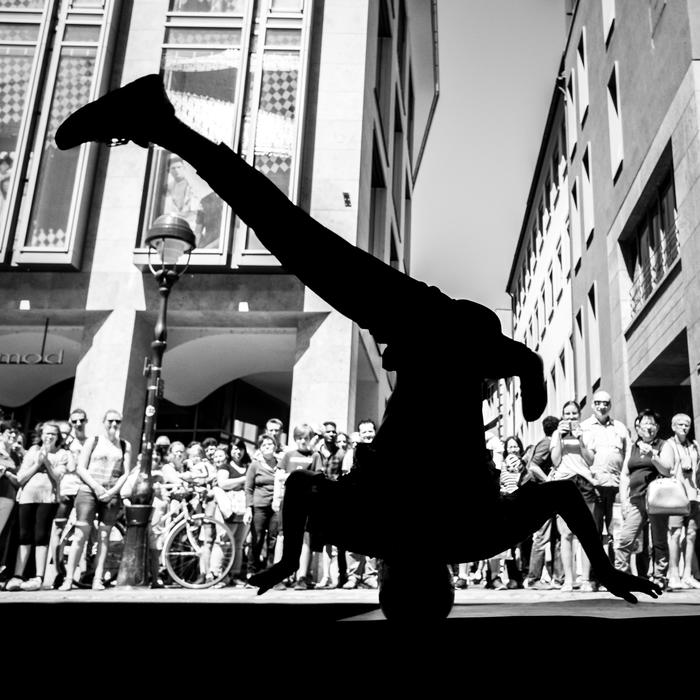Why Study in Berlin?
With a range of venues including Staatsballett Berlin, Sophiensæle, Volksbühne, HAU Hebbel am Ufer, Dock 11 and Uferstudios, Berlin offers an unparalleled environment for Critical Dance Studies. The city’s vibrant dance scene attracts artists from all over the world and recent productions of both its local and international contributors are discussed in seminars. Collaborations with national and international institutions, such as the Inter-University Center for Dance Berlin, the Staatsballett Berlin, and the Centre national de danse contemporaine in Angers, France, enrich Freie Universität Berlin’s course of study. The Valeska Gert Guest Professorship, filled each semester by a leading figure of the international dance scene, assures a stimulating exchange between theory and practice.
Participants of the master’s degree program in Critical Dance Studies are made up of an international and highly motivated community of dance thinkers with a range of academic, artistic, and curatorial backgrounds. Students benefit from a transdisciplinary exchange with the other programs at the Institute of Theater Studies, including Theater, Music, and Film Studies, as well as Culture and Media Management. Students also have access to local dance archives at the Academy of Arts (Akademie der Künste), the Media Library for Dance and Theatre of the International Theatre Institute (ITI), and the Tanzforum Berlin. The Institute of Theater Studies at Freie Universität Berlin offers further guest invitations and events. The DanceLab, a movement space in the attic of the Institute of Theater Studies, enables practical research formats.
Students at the Institute of Theater Studies have access to the extensive dance and theater collections in our library, and to our media department, as well as to the Campus Library (Campusbibliothek) and Philological Library (Philologische Bibliothek, known as "The Berlin Brain"), offering students comprehensive resources for pursuing their study and research aims. The Staatsbibliothek, one of the largest libraries in Europe, and the Kunstbibliothek, one of the largest museum libraries worldwide, are free to access for those living in Berlin and provide unparalleled access to not only secondary literature, but primary sources dating back to the medieval.


